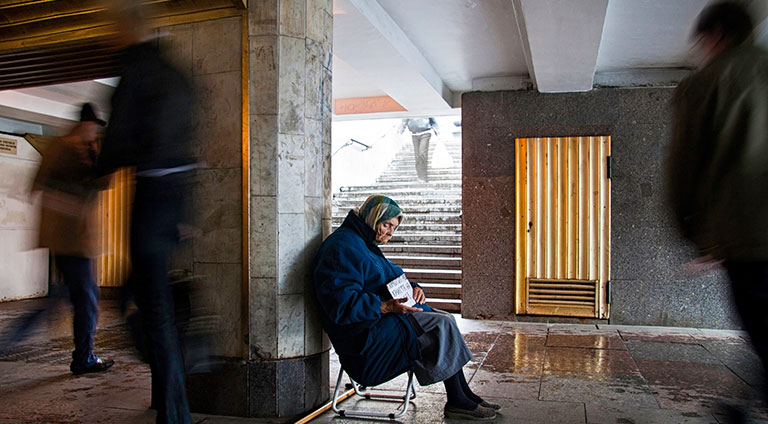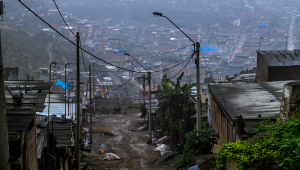begger-on-main-street-nevsky-prospect-mowscow_istock_000043142306_large.jpg

An elderly woman begs for money in a Moscow underpass (photo: iStock)
Each year, governments spend $13trn on goods and services, and by better targeting this spending, it could become an important tool in aiding development, the report from Chatham House stated.
“The current approach to sustainable procurement is too limited, primarily defined in terms of value for money, and focused more on preventing harm than doing good,” said report author Thiago Uehara, research fellow at Chatham House.”
The prevailing model has its roots in the mid-2000s, largely being based on a business-led commission set up by the UK government. Uehara said it places too much emphasis on generating profit for businesses, and centres environmental concerns above other issues, such as social equality.
“They meant well. For the early 2000s it was fine, but we can do better now,” he said. “Government spending should primarily be delivering a public service and a public need.”
The prevailing framework around sustainable procurement often leads to a tick-box exercise aimed at ‘greening’ the economy, but Uehara said this is not always the main local priority.
Uehara’s model gives governments more control over what they consider important for their sustainability, linking it with their national strategy – “devolving the definition of sustainability to sovereign states”.
His model has five ‘pillars’ of sustainability: intergenerational equity, intragenerational equity, interspecies equity, procedural equity (fairness in the way decisions are made) and geographical equity.
“Each jurisdiction should be serving the priority for that jurisdiction,” he said. “It should be their own strategy based on what’s important for their development.
“If their strategy is to eradicate hunger, then they should be able to work towards that goal through public procurement using a set of sustainability principles.”
Uehara added that governments could, for example, look to local communities to provide food, rather than relying on cheap (potentially poorly nutritious) or donated food from large corporations or from overseas, and could develop their rural economy instead.
Some changes to the procurement process might be required, for instance exempting the rural poor from meeting certain conditions or jumping through legal hoops.
“We need to treat marginalised groups as such, and not as if they are multinationals,” Uehara said.
All of this does not mean sustainability precludes economic growth in countries where that is a priority, he said, just that it does not require it.
Uehara thinks adopting the framework will be equally challenging for all countries, but developing countries have more to gain.
“Very often economists say sustainable procurement is only for affluent or wealthy states, but in my report we looked at case studies from the developing world,” he said.
And the need for a new model is even more pressing in the context of Covid-19, he added. “Governments are embarking on a period of unparalleled government expenditure. Procurement for sustainable development needs to be at the heart of this process, or the world will lose a critically important opportunity – one that is, perhaps, the opportunity of a generation.”













